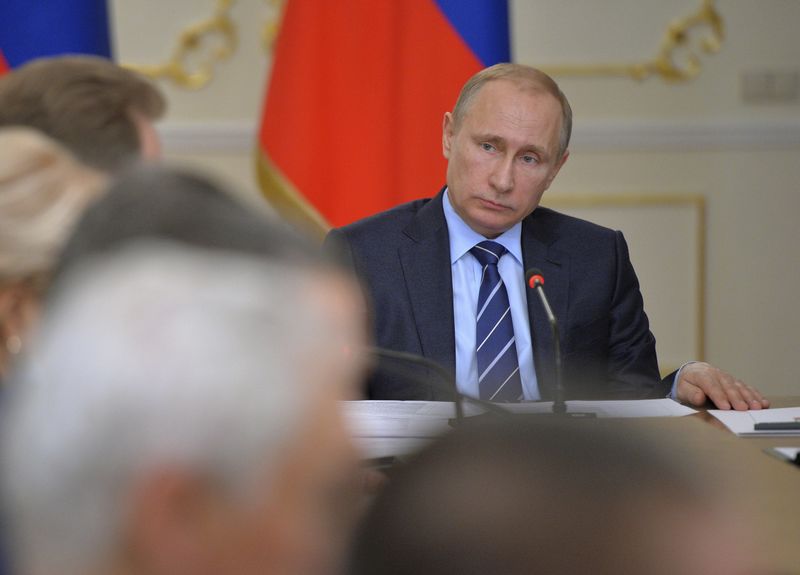By Darya Korsunskaya
MOSCOW (Reuters) - Russian ministers presented President Vladimir Putin with a 1.375 trillion rouble ($21 billion) anti-crisis plan on Wednesday, including 250 billion roubles from the National Wealth fund to help recapitalize state banks.
Russia's economy is sliding towards recession, hurt by a collapse in global oil prices, Western sanctions over the Ukraine crisis and a failure to address the country's long-term dependence on commodities exports.
"The plan is still not final, we will continue to work on it and add to it. Most likely it will be expanded," First Deputy Prime Minister Igor Shuvalov said at the meeting with Putin.
Shuvalov also mentioned 86 billion roubles in subsidies for agriculture, industry and medicine, as well as regional tax breaks for small businesses.
He said the costs associated with the plan were made up of additional budget spending, expenditure from the National Wealth Fund and lost income from new tax benefits.
The rouble hit a string of all-time lows against the dollar and euro in December, threatening the financial stability on which Putin's popularity partly rests.
Economy Minister Alexei Ulyukayev said on Wednesday the economy was starting to show signs of recovering from the worst of the financial crisis, citing stabilization on Russia's stock, currency and money markets.
He said: "It seems that we've touched the lower boundaries of those risks which we came up against at the end of last year. The adaptive potential of Russian businesses and sectors is starting to show."

($1 = 65.7000 roubles)